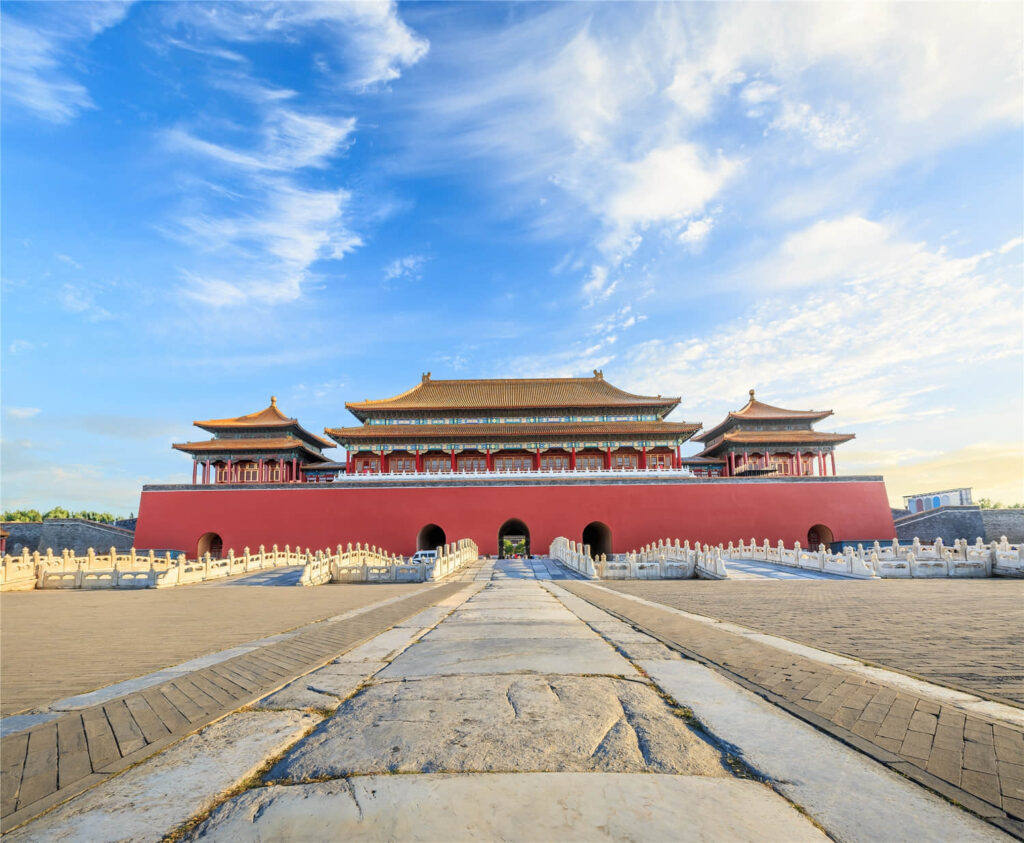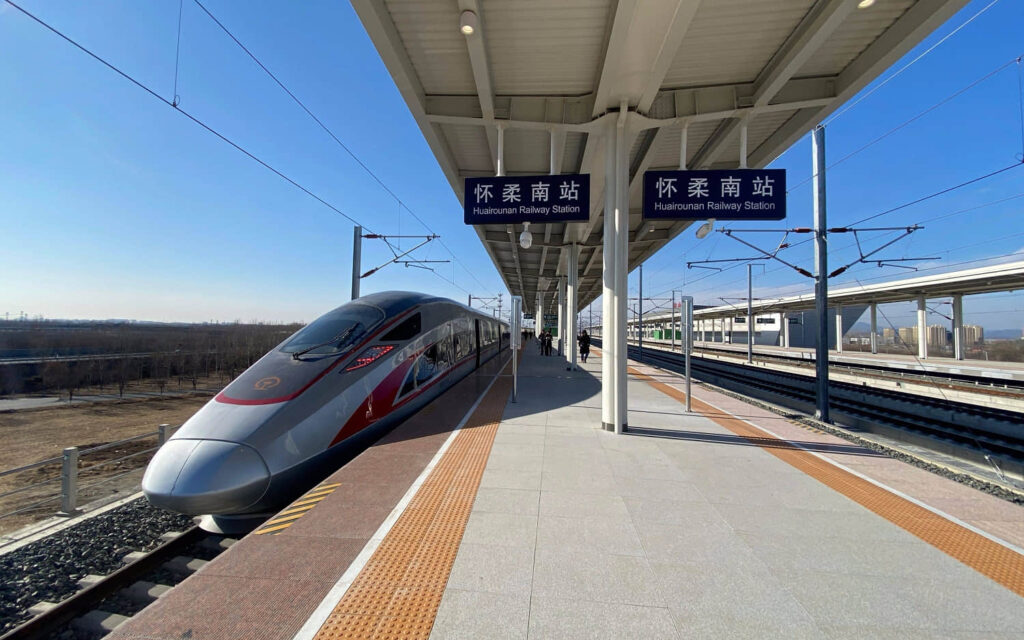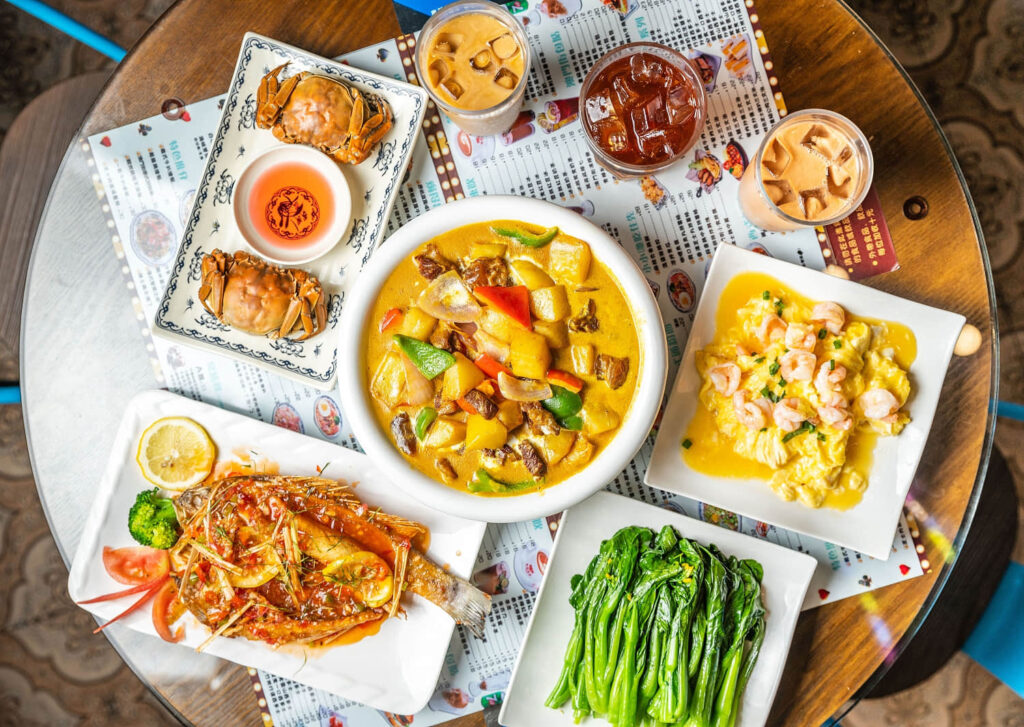Are you ready to explore China but unsure where to start? This guide will provide essential insights into navigating cultural norms, communication barriers, health safety, etc. By understanding these key aspects, you’ll enhance your travel experience and travel through China easily and confidently. Dive into our comprehensive guide to prepare thoroughly for your adventure in the Middle Kingdom.
Language and Communication
Navigating language barriers is one of the most challenging aspects of traveling in a foreign country. Communicating effectively in China, where Mandarin is the predominant language, can greatly enhance your travel experience. Here’s a guide to help you bridge the language gap:

Understanding the Language Landscape
Mandarin is the official language of China, spoken by over a billion people. While English is taught in schools and is increasingly prevalent in major cities, many locals do not speak it fluently outside tourist areas or international business contexts. Here are some tips to help you communicate:
- Learn key phrases: Equip yourself with basic Mandarin phrases such as “Hello” (你好, Nǐ hǎo), “Thank you” (谢谢, Xièxiè), and “How much?” (多少钱, Duōshǎo qián). Even a small effort in the local language can go a long way in facilitating interactions.
- Use translation apps: Technology can be a great aid. Apps like Google Translate or Pleco offer real-time translation and can help you understand menus, signs, and conversations.
Effective Communication Strategies
When language is a barrier, non-verbal communication becomes invaluable. Here are some strategies to enhance understanding:
- Use simple English: If you find someone who speaks some English, use simple words and sentences. Avoid slang and idioms that may not translate well.
- Be patient and use gestures: Non-verbal cues can help convey your message. Be patient, as mutual understanding may take time.
- Carry a bilingual map or phrasebook: These tools are helpful for both you and the person you are trying to communicate with. To avoid confusion, they can point to items or locations on a map or in a book.
Encountering Local Dialects
China has several dialects and regional languages, which can vary dramatically from Mandarin. In cities like Shanghai, you might encounter Shanghainese, while in Guangzhou, Cantonese is prevalent. Here’s how to cope:
- Be aware of regional differences: Understanding that different regions may use different dialects helps set realistic expectations for communication.
- Ask for help: Don’t hesitate to ask for assistance from younger people, who are more likely to speak English due to recent education trends.
By preparing with some basic language tools and strategies, you’ll be better equipped to navigate through China, making your travel experience smoother and more enjoyable.
Health and Safety Tips
Traveling to a new country brings excitement and adventure but requires awareness of health and safety practices to ensure a worry-free trip. When visiting China, there are several health precautions and safety measures you should consider:

Health Precautions
Before embarking on your journey, take the following steps to protect your health:
- Travel insurance: Ensure comprehensive travel health insurance covering medical expenses and evacuation. The healthcare system in China can be expensive for foreigners.
- Pack a travel health kit: Include hand sanitizer, first aid supplies, prescription medications, and over-the-counter medications for common travel-related illnesses.
Food and Water Safety
To avoid gastrointestinal illnesses:
- Drink only bottled or boiled water. Tap water in China is unsafe, but boiled water is commonly served in restaurants.
- Be cautious with street food. Opt for vendors with high turnover, where food is prepared on the spot and is hot.
Personal Safety Tips
While China is generally safe for tourists, it’s important to observe basic safety precautions:
- Be aware of your surroundings, especially in crowded markets, tourist sites, and public transport.
- Guard against petty theft. Securely carry your valuables and be cautious with your possessions in public areas.
- Scam awareness: Be wary of common scams aimed at tourists, such as unlicensed taxis and fake tickets. Always use reputable services.
Environmental Hazards
Depending on your travel season and destinations in China:
- Seasonal weather: Be prepared for the climate of the regions you visit. Southern China can be hot and humid in summer, while northern parts can be extremely cold in winter.
Navigational Essentials
Navigating China’s vast and diverse landscapes is an exhilarating part of any road trip. Still, it comes with challenges and considerations, especially if you plan to drive. Here’s how you can navigate China’s roads safely and efficiently, whether driving or using public transport.

Understanding Transportation Options
China’s public transportation network is extensive. For those opting not to drive, here’s how you can get around:
- Trains: The high-speed train network (高铁, Gāotiě) connects major cities at impressive speeds and is perfect for covering long distances quickly.
- Buses: Extensive networks cover both cities and rural areas. City buses are cost-effective, while long-distance coaches connect smaller towns with major cities.
- Metro systems: Large cities like Beijing, Shanghai, and Guangzhou feature extensive and user-friendly subway networks with signage and announcements in both Chinese and English.
Self-Driving in China
For those interested in a self-driving experience, China offers unique opportunities that can be facilitated by agencies specializing in this area:
- Self-driving tours: Companies like Navo Tour provide services tailored for tourists looking to explore China at their own pace. They assist with car rentals and offer guidance on navigating Chinese roads.
- Legal requirements: To drive in China, foreigners need a Chinese driving license; international licenses are not typically accepted. However, agencies like Navo Tour can help facilitate obtaining a temporary Chinese license.
- Road conditions and etiquette: While major city roads are well-maintained, rural and remote areas can present more challenging driving conditions. Traffic etiquette in China can vary significantly from what many Western drivers may be accustomed to, with local driving styles that might seem aggressive or chaotic.
Using Technology for Navigation
Leverage technology to enhance your driving and navigation experience in China:
- GPS and map apps: Apps like Baidu Maps and Amap (高德地图) are preferred for their accuracy over Western counterparts like Google Maps, which requires a VPN for use in China.
- Translation apps: These are crucial for translating place names and navigating communication with local services, and they are ideal for those renting cars and driving.
Navigational Challenges
Navigating China involves more than just coping with traffic. Be prepared for:
- Language barriers: Not all signage outside of metro areas will be in English, which can complicate travel for those unfamiliar with Mandarin.
- Address systems: Directions in China are often given using landmarks rather than street names, which can be confusing without local assistance.
Equipped with the right information and tools, navigating China, whether by public transport or a self-driven car, can be a rewarding part of your travel adventure.
Culinary Journey: What to Expect
Exploring China’s culinary landscape is like embarking on a flavorful adventure that spans thousands of years and encompasses diverse tastes and traditions. Whether you’re a food lover or simply curious about different cuisines, China’s food scene offers an exciting mix of flavors and dishes. Here’s what you need to know to savor the full spectrum of Chinese cuisine.

Diversity of Chinese Cuisine
China’s culinary tradition is incredibly diverse, divided into several regional cuisines, each with its unique flavors and techniques:
- Sichuan Cuisine: Known for its bold, spicy flavors with liberal use of garlic and chili peppers. Famous dishes include Kung Pao chicken and mapo tofu.
- Cantonese Cuisine: Characterized by its mild, fresh flavors and emphasis on seafood. Dim sum and roast duck are popular Cantonese dishes.
- Shandong Cuisine: This northern style also features seafood and highlights soups and stews, enhancing the ingredients’ natural flavors.
Dietary Considerations
When traveling in China, here are some tips to manage dietary preferences and restrictions:
- Vegetarians/Vegans: Major cities have vegetarian and vegan restaurants, but finding meat-free dishes in smaller towns can be challenging. Learn to say “I don’t eat meat” (我不吃肉, Wǒ bù chī ròu) clearly.
- Food allergies: Communicate any allergies straightforwardly. Carrying a translated card that specifies your allergies can be helpful.
Dining Etiquette
To enhance your dining experience, it’s useful to understand some of the local dining customs:
- Shared meals: Most Chinese meals are served with shared dishes placed at the center of the table.
- Chopsticks: Never stick your chopsticks vertically into a rice bowl, as this is reminiscent of incense sticks burned for the dead. Instead, lay them on your chopstick rest when not in use.
- Tipping: Tipping is not customary in China and can sometimes be seen as insulting.
Street Food and Local Markets
To truly experience the heart of Chinese cuisine, venture into the local markets and try the street food:
- Street food: Look for places with a high turnover, indicating freshness. Try local specialties like jianbing (savory crepe) or baozi (steamed buns).
- Local markets: Markets offer a glimpse into the daily life of residents and are a good place to try fruits and snacks unique to the region.
Popular Chinese Dishes to Try
Here are a few dishes that you must try during your visit:
- Peking Duck: A famous Beijing dish known for its crispy skin and succulent meat.
- Xi’an Biang Biang Noodles: Thick, spicy noodles from the Shaanxi province.
- Guangzhou Dim Sum: Experience the wide variety of Cantonese dim sum in its city of origin.
Exploring China through its food not only tantalizes your taste buds but also offers insights into its culture and history. Prepare to indulge in a rich tapestry of tastes that will leave you lasting memories of your travels.
Money Matters: Currency, Payments, and Budgeting
Managing your finances effectively while traveling in China can enhance your experience by reducing stress and allowing you to enjoy the attractions and cuisine worry-free. Here’s a guide to help you navigate money matters in China.

Understanding the Currency
The official currency of China is the Renminbi (RMB), commonly referred to as the yuan (元, CNY). Here are some essential tips regarding currency:
- Exchange Rates: Keep an eye on the exchange rate to get the best deal when converting your money.
- Currency Exchange: You can exchange currency at international airports, major hotels, and banks. Always have some cash on hand, as smaller vendors may not accept cards.
Digital Payments
China is at the forefront of digital payment technology, often bypassing traditional banking systems:
- WeChat Pay and Alipay are the two dominant payment methods in China. Setting up an account can be tricky for tourists, but it’s becoming easier. Check if your international credit card can be linked to these services.
- Credit Cards: While major hotels, restaurants, and stores in urban areas accept credit cards, many places in smaller towns do not. Always carry some cash as a backup.
Packing Essentials and What to Bring
Packing for a trip to China requires thoughtful preparation to ensure you have everything needed for a comfortable and hassle-free journey. Here are some essentials to include in your suitcase, tailored to China’s diverse climates and cultural expectations.
Seasonal Clothing
China’s vast territory means weather conditions vary significantly:
- Spring and Fall: These seasons are generally mild but can be unpredictable. Pack layers—light jackets, sweaters, and comfortable walking shoes.
- Summer: It can get hot and humid, especially in southern China. Bring lightweight, breathable clothing, sunglasses, and a sunhat.
- Winter: Northern China experiences harsh winters. Pack warm clothing, including a heavy coat, thermal wear, and boots.
Essential Items
Certain items will make your travel in China more comfortable:
- Power Adapter: China uses type A, C, and I sockets. Check if you need an adapter for your devices.
- Medications: Bring any prescription medications and a doctor’s note in their original packaging. Also, basic over-the-counter medications for common travel ailments should be considered.
- Hand Sanitizer and Wet Wipes: These are essential for travel anywhere, especially when exploring street food markets.
Technology Tools
To stay connected and navigate easily, consider packing the following:
- Smartphone with a VPN: Accessing Western websites and apps like Google and Facebook requires a VPN in China.
- Portable Charger: Keep your devices charged during long days of exploration.
- Offline Maps or GPS Apps: Download maps or apps like Baidu Maps for easier navigation within cities.
Cultural Considerations
When visiting religious or traditional sites, it’s important to be culturally respectful:
- Modest Clothing: Avoid sleeveless tops and shorts for visits to temples and other religious sites. Bring a scarf or shawl to cover your shoulders if necessary.
- Gifts: If visiting a Chinese home, bringing a small gift, such as tea or a souvenir from your home country, is polite.
Conclusion
You’re all set! With these tips and your bags packed, you’re ready to dive into the exhilarating adventure of China. Go forth with curiosity and enthusiasm—delight in the delicious foods, stunning sights, and warm people you’ll meet. China is calling, and it’s time to answer!
